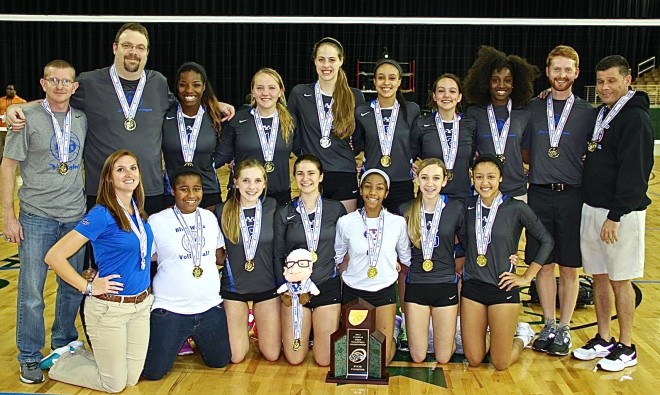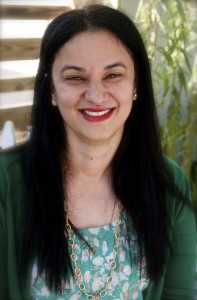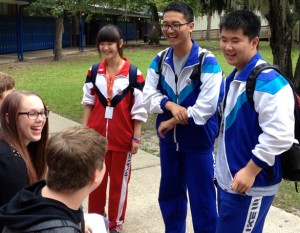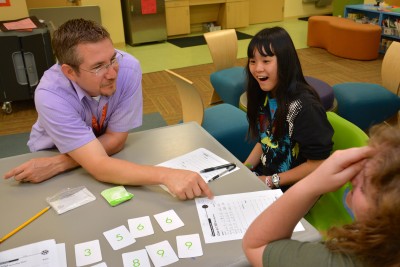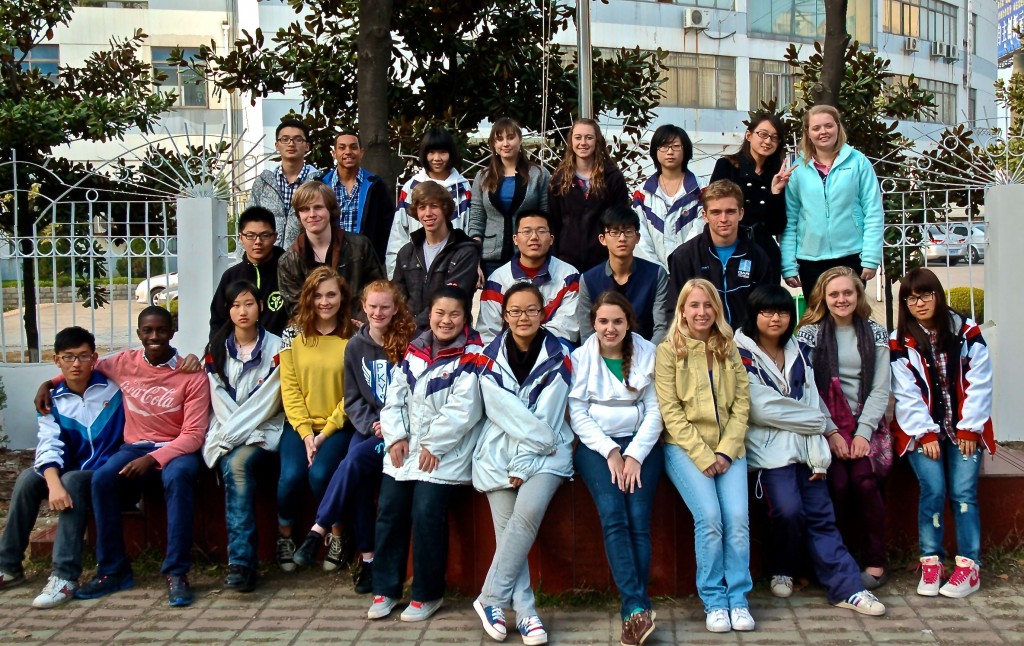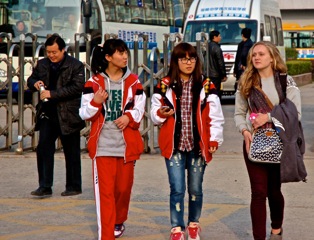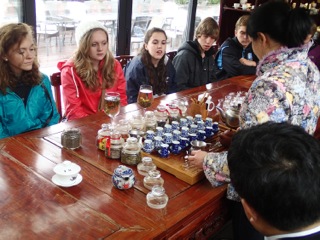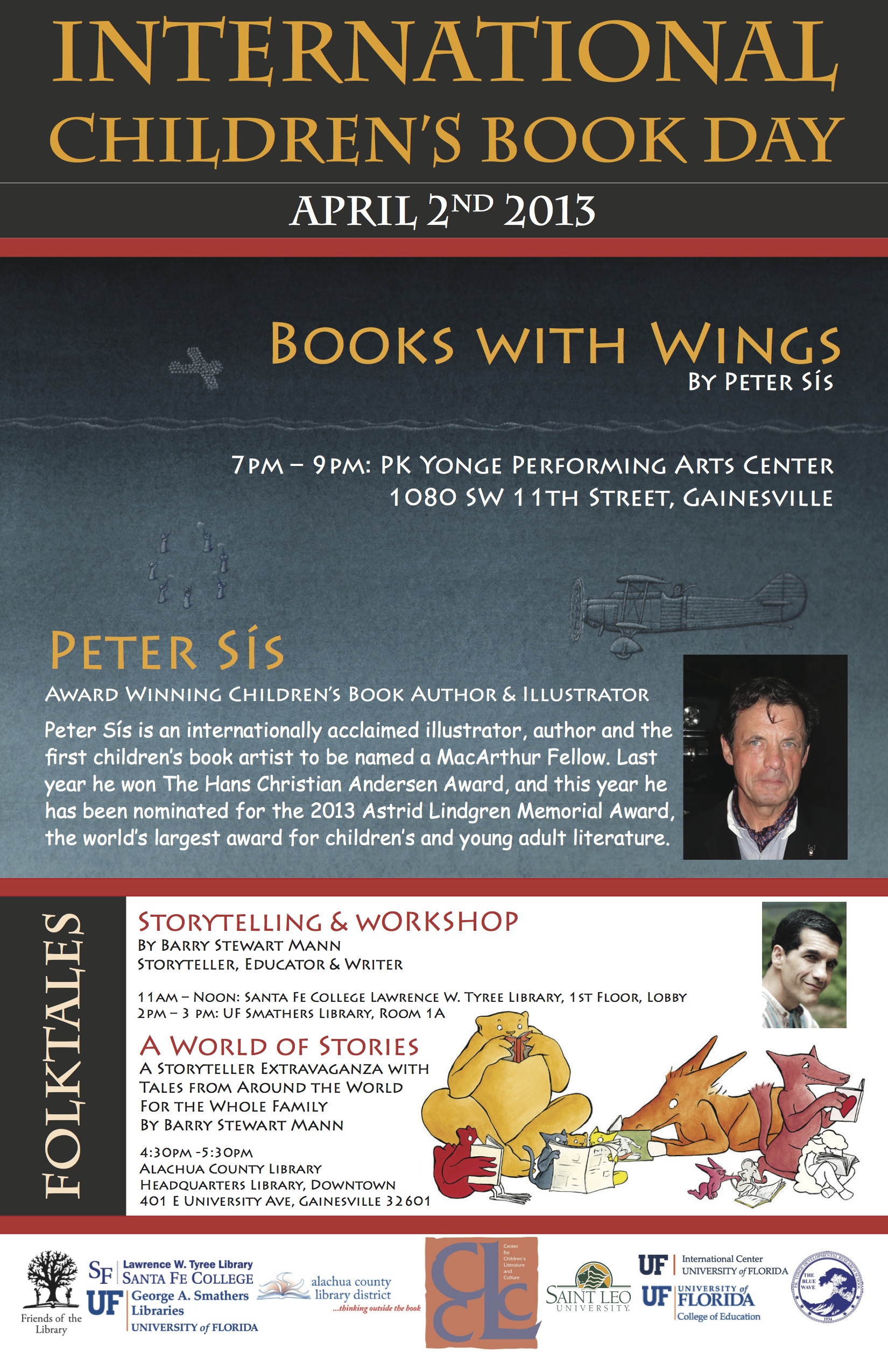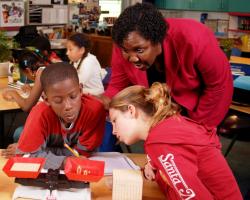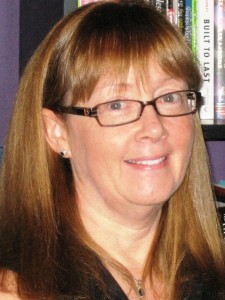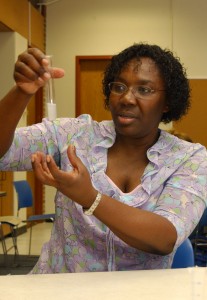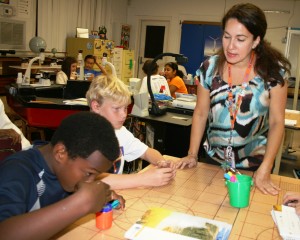COE doctoral student honored for ‘teaching tolerance’
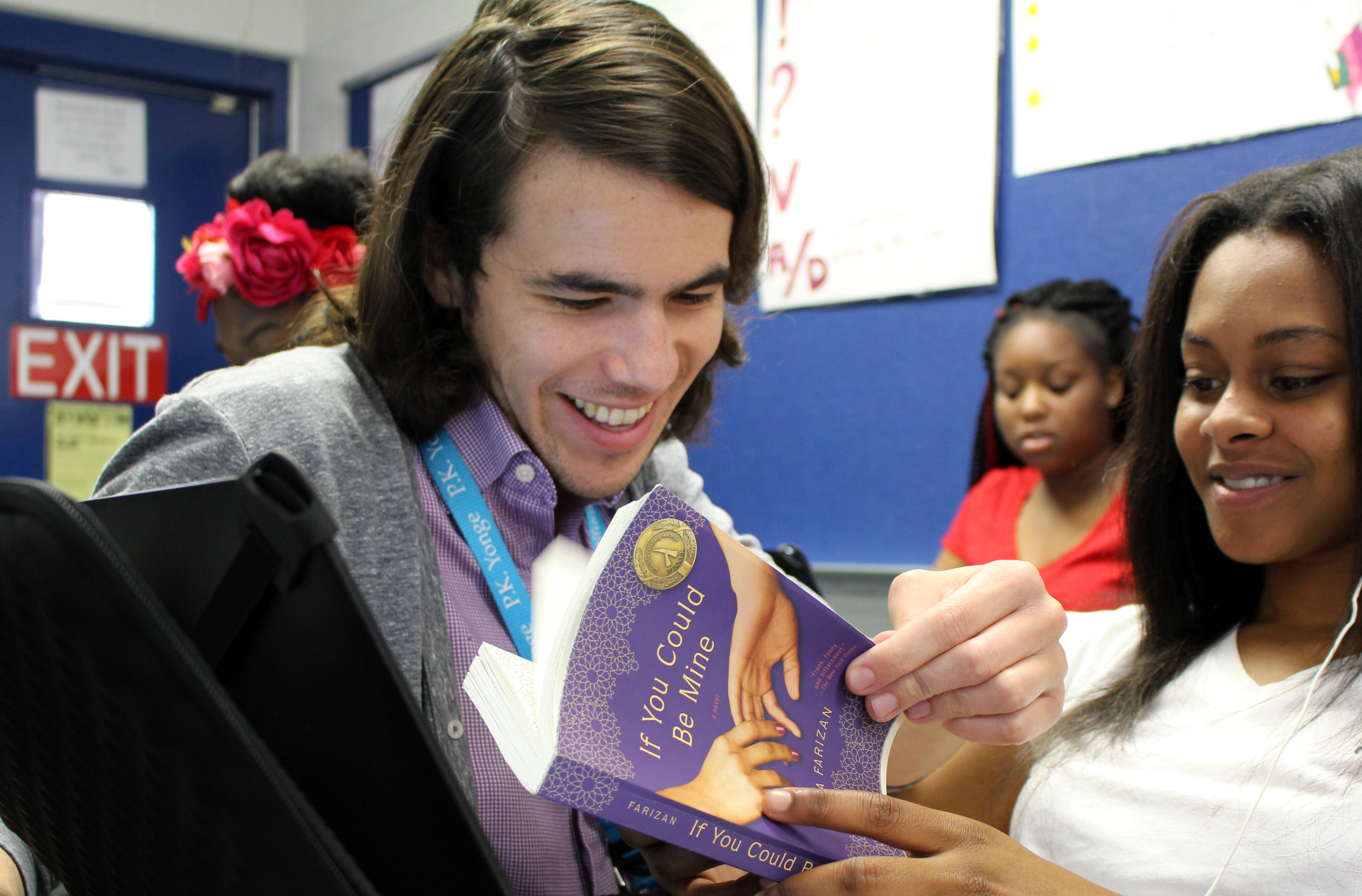
Cody Miller and one of his ninth-grade English students.
Ninth-grade students at P.K. Yonge Developmental Research School are starting the school year today in the classroom of a language arts teacher who has recently gained state and national attention for his effective instructional methods.
Cody Miller, 27, who is in his fourth year teaching ninth grade English language arts, reaches far and wide for inspiration to teach writing and literature to students — and it is paying off.
Miller was one of five U.S. educators honored for excellence by the Southern Poverty Law Center at a July ceremony in Montgomery, Alabama. The center’s Teaching Tolerance project says it selects K-12 teachers who excel at reducing prejudice and supporting equitable experiences among students for the $2,500 biennial award.
Miller also was among a select group of Florida instructors ranked by Florida Department of Education for having the highest impact on the academic growth of their students during the past three years.
In addition to teaching high schoolers, Miller is pursuing a doctorate in curriculum and instruction with an emphasis in English education from UF College of Education.
In an interview, Miller talked about his teaching philosophy and the methods he uses to engage students in literature and language arts.
“Helping students become both writers and readers and understanding that literacy and literature is a way for them to gain autonomy and power in society really drives my English language arts curriculum,” Miller says.
He credits Paulo Freire, an influential Brazilian educator and thinker, for being a big influence. Freire emphasized dialogue with students and concern for the oppressed.
Miller says students aren’t empty vessels, that education is a relationship between teacher and students as opposed to a “banking model” in which the educator makes deposits into the mind of the student.
Educator Rudine Sims Bishop, a professor of emeritus at Ohio State University, who pioneered what she called a “windows and mirrors” concept to children’s literature, also has influenced Miller.
“Students should be able to have literature and poetry and narratives that act as mirrors so they can see themselves and windows so they can see other people’s experiences,” Miller says.
He tries to set this foundation from the first day of class when students exchange personal letters with him about their learning experiences and later as they “co-create” the curriculum for the class.
In addition to classics such as “Romeo & Juliet,” Miller assigns texts like “If You Could Be Mine” by Sarah Farizan, an Iranian-American who writes about a teenage lesbian in Tehran, where homosexuality can be punished by death. Such books inevitably become a rich source of dialogue and study among students and often gives them the courage to tell their own stories in and out of the classroom, Miller says.
In a recent video about Miller, several of his teenage students were asked to describe him in one word. Among the responses: “woke” (meaning aware of injustices), “intelligent” and “decolonial.”
Miller co-sponsors the “De-colonizing Club,” a lunchtime discussion group open to all students to explore globalization and how colonialism and the dominant U.S. and Western culture has influenced their identities. He also leads school-wide professional development on creating inclusive spaces and curriculum for LGBTQ students.
After he completes his doctorate degree, expected in 2009, Miller wants transition to a career as a professor of English education. “I would eventually like to work with future teachers and think about how I can broaden my sphere of influence,” he says.
Source: Cody Miller, 352-392-1554
Writer: Charles Boisseau, 352-273-4449

